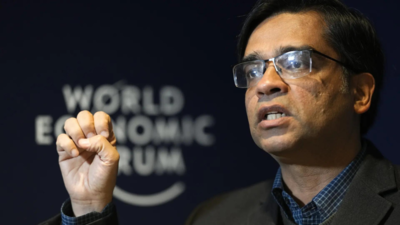Oxfam International’s flagship report, ‘Takers, Not Makers’, was released at the World Economic Forum annual meeting, focusing on persisting inequalities rooted in colonialism.
The report examined how colonial wealth extraction and exploitation practices laid the foundation for persistent disparities plaguing the modern world. It revealed how the systematic looting of resources and suppression of industries in colonised nations, particularly India, devastated not only local economies but also enriched colonial powers, creating cycles of economic dependency and underdevelopment.
Below are the ten key findings from the report:
1. Colonial wealth extraction from India
The UK drained $64.82 trillion from India during colonial rule between 1765 and 1900, with $33.8 trillion benefiting the wealthiest 10%. This wealth fueled economic growth in Britain while plunging India into poverty. The report highlights that the colonial practices systematically dismantled India’s industrial base, leaving long-lasting scars on its economy.
2. Modern corporations and colonial origins
Oxfam traced the origins of modern multinational corporations to colonial ventures like the East India Company. These corporations, granted monopolies and military powers, exploited labor and resources in the colonies. Today’s multinationals, according to Oxfam, continue this legacy through exploitative supply chains and resource extraction, disproportionately impacting the Global South.
3. Billionaire wealth soars
The wealth of billionaires skyrocketed by $2 trillion in 2024, reaching a staggering $15 trillion. This increase was three times faster than the previous year. With 204 new billionaires minted globally, Oxfam drew attention to the growing divide between the ultra-wealthy and those living in poverty.
4. Unearned wealth dominance
A significant 60% of billionaire wealth now stems from inheritance, monopolies, and crony connections. The report challenged the narrative of self-made billionaires, citing that inherited wealth perpetuates inequality. By 2034, Oxfam estimated over $5.2 trillion will be passed down to heirs, concentrating wealth further in the hands of a few.
5. Widening gender and wage gaps
Migrant women in high-income countries face significant wage disparities, earning 20.9% less than male nationals. Additionally, workers in the Global South earn up to 95% less than their counterparts in the Global North for similar skills. These systemic inequalities underscore the exploitation of marginalized groups in global labor markets.
6. Exploitation in global supply chains
Global supply chains remain a modern form of colonial wealth extraction. Workers in the Global South often endure poor working conditions, minimal wages, and a lack of social protection. Corporations reap massive profits, perpetuating economic dependency and control while disregarding workers’ rights.
7. Colonial impact on industrial decline
India’s industrial share fell from 25% in 1750 to just 2% by 1900, a decline fueled by British policies designed to suppress local industries. Protectionist measures against Asian textiles crippled India’s economy, reducing it to a supplier of raw materials for British factories.
8. Climate and resource exploitation
Colonial resource exploitation practices laid the groundwork for today’s climate crisis. Fossil fuel extraction, initiated during colonial times, continues to accelerate climate breakdown. The burden disproportionately falls on countries in the Global South, which bear the brunt of environmental degradation caused by Global North economies.
9. Biopiracy and cultural exploitation
Oxfam highlights cases like the neem patent, where traditional knowledge was commercialised without compensation to its original custodians. Such acts of biopiracy underscore how corporations profit from indigenous practices, further marginalizing communities that originated these innovations.
10. Systemic global inequality
Global institutions like the WTO and World Bank perpetuate inequalities by prioritizing the interests of the Global North. Oxfam points to the Covid-19 vaccine intellectual property dispute, in which rich nations blocked efforts by India and South Africa to ensure equitable access. The financialisation of public services in the Global South exacerbates the issue, pushing millions into poverty.




